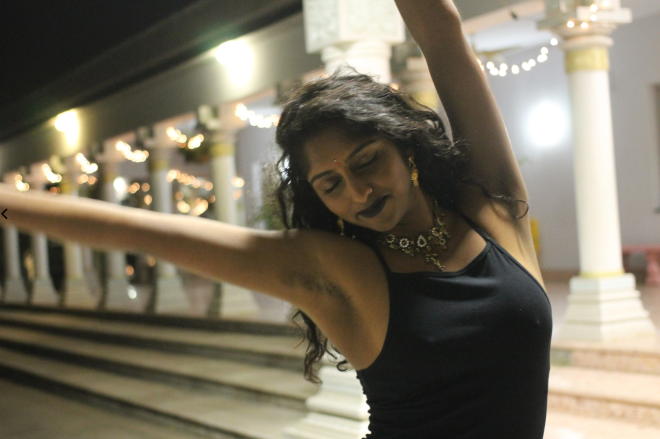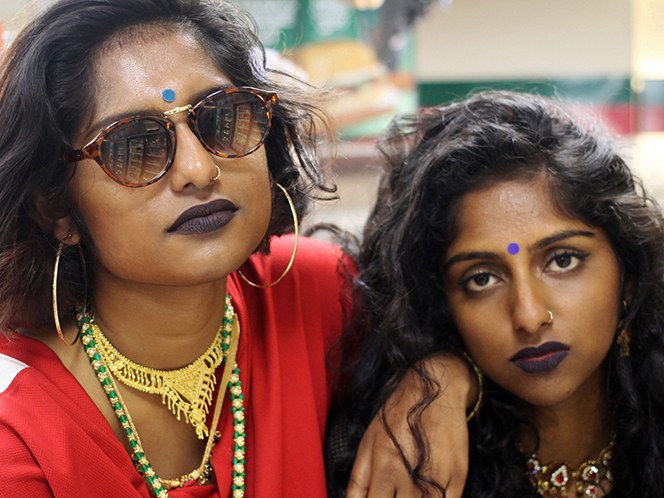
In recent times we have often heard of the importance around the need to include more diverse voices into the feminist movement. The entire premise of intersectionality points out that we cannot move the struggle forward without consideration of the voices already on the fringes; those of women of colour women with disabilities, from minority backgrounds and those who are identify as LGTQI. We understand that in the past there has not been enough room made for women whose varying identities have prevented them from being at the forefront of the movement.
In delving into this idea, more nuanced analyses arise in terms of discrimination based on geography and culture. More to the point, ideas on the concept of beauty and conformity to these standards are elements that also need to be considered. For me, I can only refer to my lived experience and my identity as a woman of colour. When I was younger I thought that the obsession of whiteness or lighter skin colour was one solely belonging to the South Asian identity, but I have later learnt that this concept is shared amongst most non-Caucasian societies.
Fairness… what a concept and where do I even start? I can begin with my own stories, my own memories and experiences. Like that time when I was told that I couldn’t go the beach prior to a wedding I was bridesmaid for because ‘think about the photos’. Or the time when my Mum and I were approached by a complete stranger on the streets of Colombo enquiring what brand of ‘Fair & Lovely’ we use to get our complexion to be so light. Or the constant denigration around ‘chi, you have gotten dark’.
For those of you not of the South Asian persuasion (A for alliteration there), Fair and Lovely is a skin bleaching product which according to BBC sells more produce in South Asia than individual bottles of Coca Cola. The notion of fairness as a sign of beauty, power and superiority is not one which is unknown within the developing world context. Whitewashing and the attempt to rid oneself of diversity has been around since the time of colonialism. However what brands like Fair & Lovely have done so toxically is to capture this mentality and inflate it twofold to also align rigid standards of beauty centering around the fairness of one’s skin.
Products associated with skin bleaching or ‘fairness creams’ as they are so aptly named promote the idea of a life changing ability of its produce. In India one such campaign focused on a darker skinned woman initially appearing sad, lonely and forlorn. Cut to then the post application status of her complexion changing immediately and this being associated with being hired for a job and getting married. The basic premise indicating that the fairness of her skin whilst being more aesthetically pleasing also affected her hire ability and her marriageability.
What this specific example is making reference to is there are nuanced oppressions and discrimination points even within those who are discriminated. Being a woman of colour in a developing context is challenge enough, but if you are a darker skinned woman you will face a similar oppression within your own community. The element of corrosiveness within this line of thinking reflects the deep seated nature of this belief in which self-worth and self-confidence seem to be linked to this scale of fairness. The underlying message being that if you are a woman, metaphorical capital in society values fairness over anything else.
Applying this line of thinking to ‘marriageability’ of women is even more troubling. I am sure we are all familiar with marriage ads which we see in newspapers; well if you are Indian and Sri Lankan you are. Let me set the scene for you, most ads where men are searching for wives begin with x incredible, successful man ‘seeking a fair, pretty woman’. Fairness being the most important selling point, of course.
There is a certain whiteness theory and colour complex at play here which is dooming entire generations of women to be judged against outdated and discriminatory standards of beauty. The knock on effects here have implications for judgment of her entire being and capability within this existence. Skin colour thereby being the most fundamental characteristic of a woman’s identity, valued and taken into consideration more than her education, professional status or intellectual ability.
In addition to this, the vast underrepresentation of women with dark skin in the media is fuelling the notion that beauty and worth is attached to fairness. I know for myself I am also guilty after spending extended time in the sun to mindlessly then turn around and ask my family ‘have I gotten dark’? The never ending social messaging engrained into my psyche making myself question my self-worth against a darker shade of brown. But from this point on I pledge to not perpetuate this insanity any more.
I also challenge you, especially if you are a woman of colour to attempt to challenge your own and your communities perception of associating fairness with beauty and worth. Let’s take the lead in obliterating this discriminatory and oppressive form of white washing which has seeped into our existence.
To the amazing:
- ‘Dark is Beautiful’: http://womenofworth.in/dark-is-beautiful/ and
- ‘Unfair & Lovely’ campaigns: http://paxjones.com/unfair-and-lovely
Do yourself a favour and check these out. Sx
*Photos © of Pax Jones and the Unfair & Lovely Campaign
